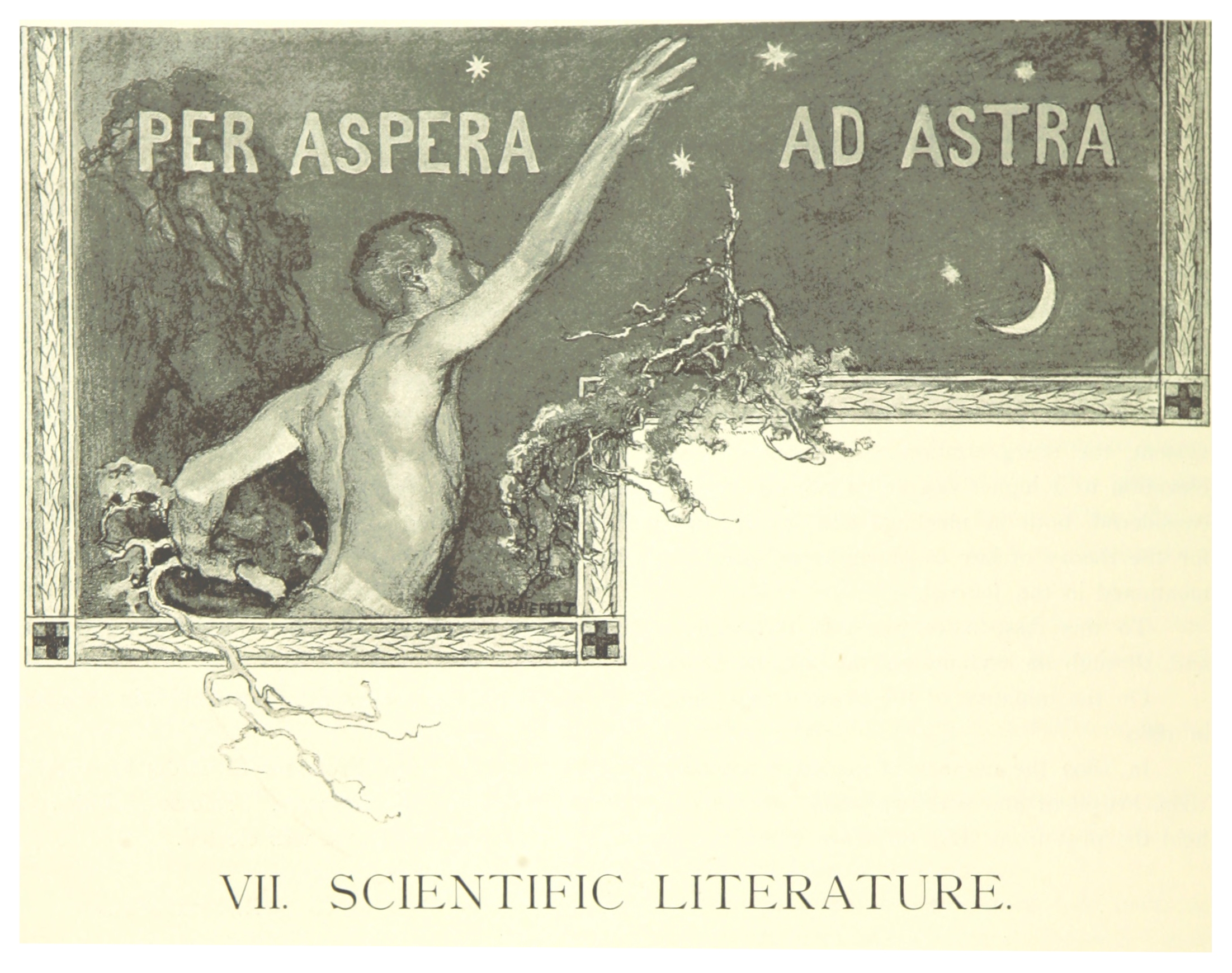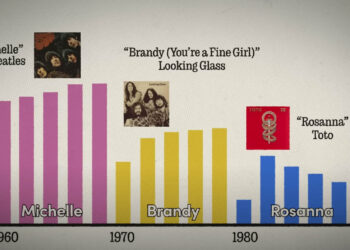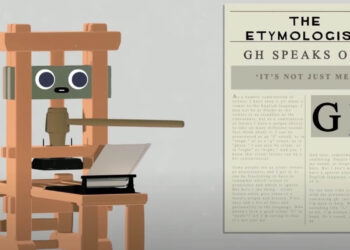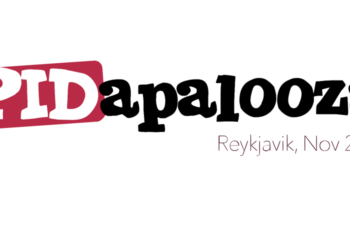
Editor’s Note: This post is a re-publication, with permission, of the September, 2016 editorial from the journal Toxicological Sciences by the journal’s Editor in Chief, Gary Miller. Gary is a Professor and Associate Dean for Research, Rollins School of Public Health, and Professor of Neurology and Pharmacology at Emory University. Full disclosure: The Executive Editor of The Scholarly Kitchen is employed by Oxford University Press, publisher of Toxicological Sciences.
Pouring through the stacks of journals during my early scientific training, I was awestruck. Reading scientific papers from 50 to 100 years ago instilled a sense of reverence. I could peruse the scientific literature for hours, not even looking for topics within my discipline. The writing was rich. The contributions were obvious. My view of the scientific literature was similar to my view of classical literature. The works of Vesalius, Harvey, Perutz, and Avery were just as artistic and inspiring as the original folios of Shakespeare. I could justify the mere browsing of the scientific literature as the acquisition of foundational knowledge and an examination of the scientific method. This leisurely reading provided a historical framework, but it did not keep me abreast of the current literature. For that I relied on the phonebook-like tomes of Index Medicus, the pre-computer version of PubMed. The National Library of Medicine curated the collections of journals with museum-like proficiency. Monthly volumes of the index would be delivered to the library and made available to investigators wanting to identify the new works on a particular subject. A few years later, this information was available on a CD that freed the user from the cumbersome volumes and also served as a harbinger of the digital age.
This was when I learned not to use “research” as a verb (as in, “I will research this topic.”), but exclusively as a noun — from the Oxford English Dictionary: the systematic investigation into and study of materials and sources in order to establish facts and reach new conclusions. While both are grammatically correct, to me the use of research as a noun better captures the spirit of the enterprise. I prefer to say that one performs or conducts research, similar to that of a conductor of an orchestra. We should venerate the scientific enterprise just as we do the arts. To research something seems blasé. Except for the very rare cinematic case witnessed in The Martian, we don’t science, we pursue science or conduct scientific research. Performing experiments in the laboratory is rewarding in its own right, but the goal should be to make a contribution to that storied literature — to have the work recorded in the scientific annals of history.
But alas, those dusty stacks of journals are giving way to the digital age. I often wonder if the transition to digital formats is making the output seem more abstract and distancing the current creators of scientific knowledge from the archives of scientific literature. Does an interactive PDF convey the findings as well as the weathered and tattered pages of history? I am no Luddite, but at times I deliberately eschew technology because of this concern, preferring the printed page over the computer screen, pencils over iPads, and a chalkboard over Powerpoint. While I am a proponent of cloud-based computing and high-throughput approaches, technology cannot replace contemplation and thoughtful reflection. Perhaps the dichotomous shifts from simple to complex and from traditional to modern helps spur new ideas. Search committees often complement formal seminars with informal chalk-talks to remove the technological shield from the candidate. Such approaches can reveal the candidate’s nature in the absence of technology.
Sifting Through The Scientific Clutter
Many of the issues surrounding the surging tsunami of data have been addressed previously (Waller and Miller, 2016). Navigating the massive amounts of quality data is a major challenge, but there is another emerging threat to science. There has been a significant increase in the number of predatory journals with minimal, if any, standards of review that cheapen the enterprise in which we are so invested. Many of these predatory journals have bastardized the term “open-access” by claiming that is their purpose. I am a strong proponent of open-access, but only of scientifically sound research. Predatory journals threaten the scientific literature in a manner analogous to the burning of books (see https://scholarlyoa.com/publishers/ for Jeffrey Beall’s list of predatory journals). When scientists allow poor quality research or junk science into our scientific sphere, we damage our own reputations. We are starting to see more of these ridiculous journals being cited in otherwise strong papers merely because the title, or perhaps the abstract, supports their hypothesis. As reviewers we must not allow authors to cite subpar science. As authors we must assure that the papers we cite are scientifically sound. I encourage authors, reviewers, and readers to dissect the list of references in manuscripts. If authors are citing works from these predatory journals, do they really care about the science?
In the late 1800s, thousands of prospectors clamored through the mountains of the Western United States looking for gold. One of the simplest methods for finding gold was panning. Taking the heterogeneous sediment from a creek and sifting to allow the sand, soil, and debris to pass through with the hope of a gold flake or nugget remaining at the end. It was a dirty, messy, and time-consuming process, but one that captivated the prospector. We are entering a phase reminiscent of the Gold Rush, with the promise of riches being pursued by the masses, even if they are not prepared for the nuances of the process and the disappointment. If we sift through enough data, mustn’t we eventually find gold? There is no doubt that the features found in Endnote, Mendeley, RefMan, Google Scholar, and ResearchGate can help us navigate the dense collection of research output, but are the promises of gold unrealistic given the expanding data debris? Fifty years ago, in the days of Index Medicus, the careful curation of the literature served as a gatekeeper of quality. The new search engines often merely serve as gatekeepers of quantity. How can we tell the difference?
Science continues to specialize and we do need specialty journals, but we also need journals that serve the scientific community. This is why I am honored to serve as Editor of Toxicological Sciences. Being a society-sponsored journal, we are backed by an organization that demands that the journal serves the scientific community and not merely the publisher (this is one of the reasons the Society of Toxicology has partnered with Oxford University Press, who has a long history of partnerships with scientific societies). While there are business realities, journals must exist for reasons other than profit. Journals that focus on scholarship and the peer-review process strengthen the reputation of scientists, but those with questionable integrity can damage science itself.
Scientific Literature is More Than Data
We must return our focus to the entity once referred to as the scientific literature. Using the word literature necessitates a certain level of quality. Literature is not the mere collection of words, but rather the scholarly and thoughtful synthesis of words and information. When a hypothesis is devised, thoroughly tested, thoughtfully analyzed, and then discussed within the context of the field, it can take on a literary quality. It evokes the spirit of Ada Lovelace and her use of the term “poetical science.” When performed correctly, science should garner the same appreciation as a work of art. Lovelace’s appreciation of the intersection of science and poetry in this instance was not surprising given that she was the daughter of Lord Byron, one of the great British poets, and a close colleague of Charles Babbage, who is credited with developing the concept of the programmable computer. Lovelace herself is commonly credited with writing the first computer program, certainly a feat epitomizing the intersection of technology and the arts (Essinger, 2014). Conscientious scientists must strive to retain the literary aspect of scientific publishing. We need to encourage our young investigators to not publish for the mere sake of publication, but to make a noteworthy contribution to their field. To produce a work of scientific art. To value quality and not quantity.
Embrace technology, provide access to raw data, take advantage of new search algorithms, utilize data management systems, but do not forget that the goal is to make a contribution to the scientific literature. To do so the author must not merely generate the data, but also question its veracity, challenge one’s own assumptions and biases, consolidate information, and provide the appropriate context. As you sift through your own results and those found in the scientific literature, do not mistake the debris for knowledge. Ask yourself, in 30 or 40 years will 18-year-old college students embarking on their scientific careers look at that paper and comment on the beauty of the work? Are you churning out papers to drive your h-index or crafting papers to inspire a future generation? I am confident that if you pursue the latter, then you will achieve the former.
—–
The author would like to thank Dr. Patti Miller, Dr. Megan Niedzwiecki, Dr. David Crotty, and Virginia Hawkins for their helpful comments.
© Reproduced, with permission, from Gary W. Miller. The Literature of Science. Toxicological Sciences (2016) 153 (1): 2-3. Published by Oxford University Press on behalf of the Society of Toxicology online at http://toxsci.oxfordjournals.org/content/153/1/2.full. All rights reserved. For permissions please email: journals.permissions@oup.com
Discussion
5 Thoughts on "Guest Post: Emory’s Gary Miller, "The Literature of Science""
Submission happens when the author is at the edge. He hates this wretched article with all his soul. A change in one place means rereading the entire article to see if the string of arguments is not interrupted. The narrative becomes a jungle. And while rereading one makes corrections that require a new read. Every sentence is awkward. But one cannot any more and submits. Then reading proofs is another torture. Luckily they don’t allow significant changes. Then, for 20 years, one avoids reading the product. Ducks the shame. Then, after 20 years have passed, one forgets what was wrong, and lo and behold. It is literature.
If that was your experience as an author, you have my sympathy. It certainly was not mine.
As an aside, one of the saving graces of Web of Science is that it indexes few, if any, journals on Beall’s List.



